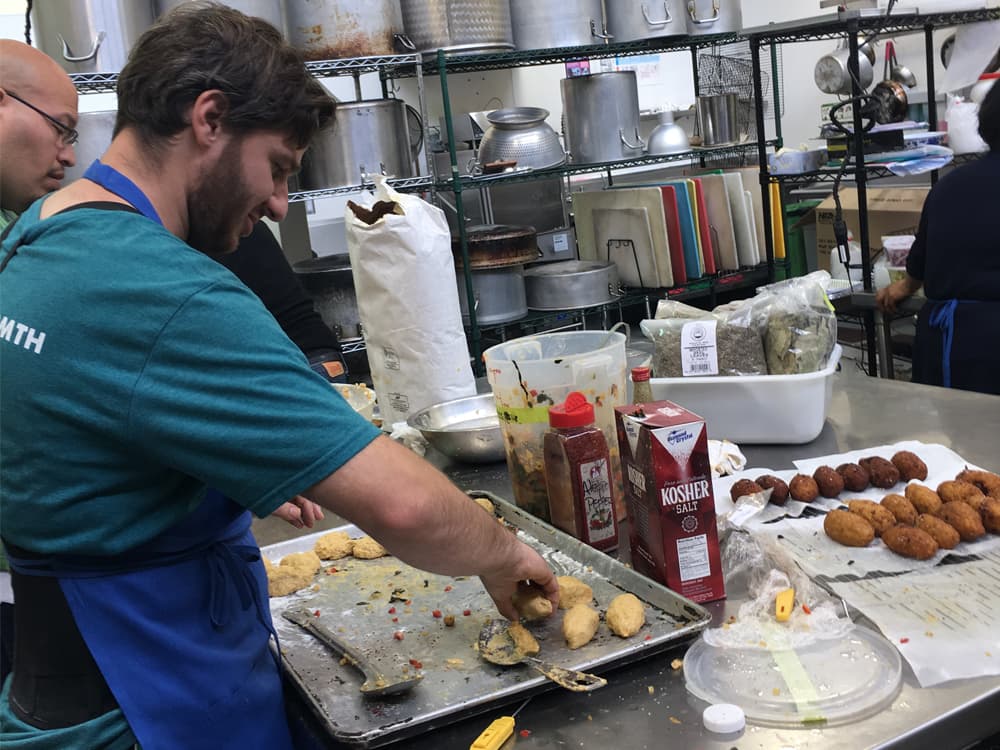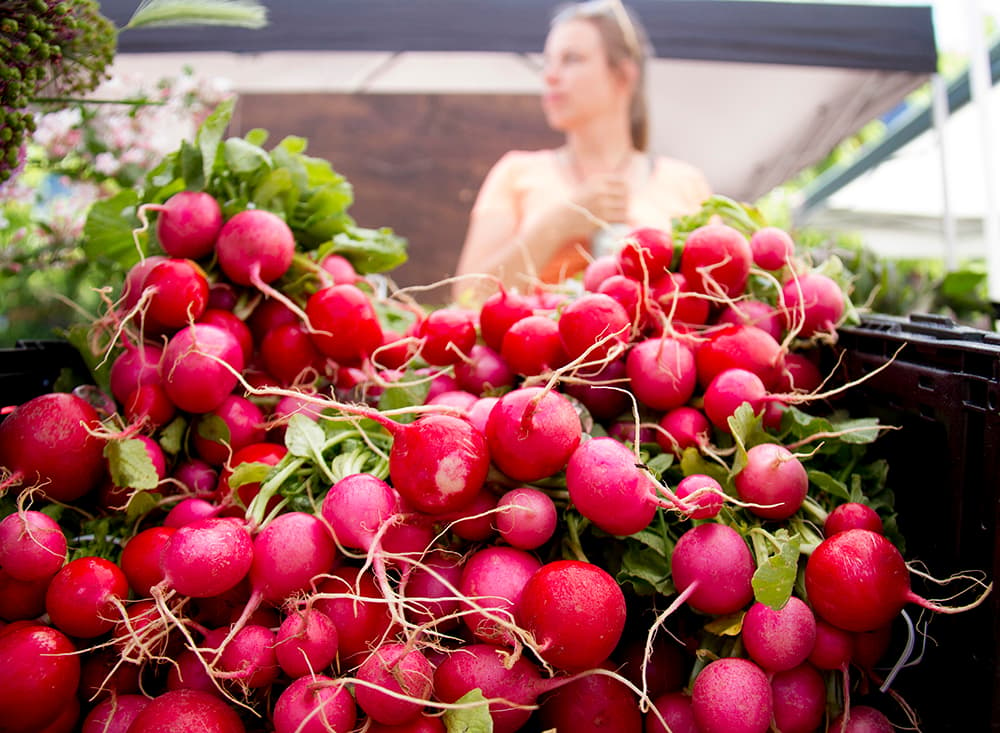STARTUP OF THE WEEK: The Food Corridor

In this series, we visit Denver-metro, Boulder and Rocky Mountain region startups. Fill out the form at the bottom of the page to be considered or nominate other startups for a chance to win a free week at Galvanize.
The local food movement is gaining momentum. And the West is on the forefront, with a higher concentration of shared kitchens and kitchen incubators than anywhere else in the United States.
What's a kitchen incubator? Think tech accelerator, for food startups.
And The Food Corridor, based in Fort Collins, is like an incubator for incubators, having designed a platform for commercial and commissary kitchens and kitchen incubators to share their space with small food businesses.
Founded January 2015 by Ashley Colpaart, The Food Corridor was born out of a love for food and a desire to alleviate the risks and costs associated with starting a food business.
It works as a software platform for kitchen sharing. Commissary kitchens, kitchen incubators and underused commercial kitchens, like those at bakeries (used in the morning), evening restaurants (used at night), churches and schools, can rent out their kitchens to food entrepreneurs, chefs and distributors. Oftentimes, those renting are looking to avoid the risks associated with investing in commercial kitchen infrastructure, which costs anywhere from $50,000-$500,000, or to scale up their businesses.
The Food Corridor is a unified scheduling, booking and fee-processing platform that also manages client documentation. In the food business, those using a kitchen must be licensed to operate out of that specific kitchen. Not only does the kitchen have to have its own licenses, but the producer must have insurance and food handling documents to operate there. In this way, The Food Corridor helps entrepreneurs and kitchen spaces manage and share risk.

The software is free for entrepreneurs to use, but the kitchens must pay fees to be listed. Kitchens can opt for a $129 per month package (half price for nonprofits) or a bulk package for multiple kitchens. There is also a "marketplace" rate, which is $5 per month but with higher fees on bookings.
According to Colpaart's own research, which she conducted as a Ph.D. candidate at Colorado State University, commercial kitchens go unused 40 to 80 percent of the time. The Food Corridor helps them earn revenue on their space, while also providing a low risk solution for food entrepreneurs to produce commercial grade products.
At the moment, The Food Corridor is mostly working with kitchen incubators, rather than commercial kitchen spaces. About 20 incubator kitchens and 200 to 250 food businesses are currently using the platform, all around the United States.
Kitchen incubators are shared kitchen spaces that also offer certification services and workshops for food entrepreneurs looking to build their businesses.
A common misconception is that kitchen incubators are a new phenomena, cropping up around 2010. But Blake Angelo, Manager of Food System Development at the Colorado Office of Economic Development, said interest in this model recurs over time.
The Business Incubator in Grand Junction, for example, has been operating since 1987. In 2002, they constructed a shared space commercial kitchen. Annalisa Pearson, the kitchen programs manager at Business Incubator, said incubator kitchens provide food entrepreneurs with mentoring and research and development opportunities without the prohibitive costs of constructing their own commercial kitchen facilities or quitting their day jobs to jump full-time into an entrepreneurial endeavor.
"[Food entrepreneurs] may say they make the best salsa in Colorado, but the fact is, they might not like to make 40 gallons at a time. They might not like to market it," she said. "It's a good place for them to come and find out if that's actually what they want to do."
Pearson said it's amazing how many kitchen incubators have appeared in and around Denver throughout the past few years.
The western United States accounts for the highest concentration -- 31 percent -- of kitchen incubators nationwide, according to a 2016 industry report. And Denver is the metropolitan area with the third highest concentration of kitchen incubators, after New York and Austin.
"Denver and Colorado are home to a lot of people who are entrepreneurially excited," Angelo said. "Food is exciting and has been very successfully created here with success nationwide and globally. There is something to our climate here and how people find success in food businesses."
Pearson attributes the increase in kitchen incubators to renewed interest in the local food movement.
Unlike interest in food incubators, which ebbs and flows over time, the local food movement is ongoing. In fact, the first ever Rocky Mountain News issue, published in 1859, contains a story called "Farming vs. Gold Mining." It discusses the economic benefits of developing a local food ecosystem to support the mining industry.
And greater emphasis on consuming Colorado-grown products can benefit the local economy. Angelo said some entrepreneurs think of it as a way to provide food security for the underprivileged, while others consider it a business development strategy. Either way, strengthening food and food-based businesses provide economic development for a region and can provide powerful advancement opportunities for women and minorities.
According to a 2016 report by the city of Denver, Colorado food processing businesses have a strong history of success nationally. Food processing, including production of pickled vegetables, snacks and beverages, generated $3.5 million in sales in 2013, and food processors made on average $67,159 -- about twice the national average.
Food incubators can open the door for entrepreneurs to cash in on this booming industry and play a major role in developing local food. But Angelo warned they can be expensive and risky to operate, providing longevity challenges to the incubators themselves.
Colpaart believes The Food Corridor can round out some of these challenges for incubator kitchens. That's why she also founded the NICK, a nationwide community for incubator kitchens and commissary kitchens to share data, best practices and technical assistances for growing their businesses.
Ultimately, Colpaart would like to see The Food Corridor quadruple the number of kitchens on the platform and become the industry standard for shared kitchen spaces, like an AirBnb for sharing kitchen space, and providing certification and distribution opportunities.
In March, she will speak on a panel at the International Conference on Business Incubation (INBIA) in Seattle, where she will be labeled a leader in the space of kitchen incubation.
Co-founders: Ashley Colpaart, Dan Moore, Ben Nelson, Racheal Miller, BlueBird Branding
Employees: 5
Industry: Technology, Software as a service
Founded: July 2015
Launched: July 2016
Funding: Bootstrapped; Winnings from a series of pitch competitions in 2015
Office: Fort Collins
Multimedia business & healthcare reporter Chloe Aiello can be reached via email at [email protected] or twitter.com/chlobo_ilo.
Subscribe to Denverite’s newsletter here













